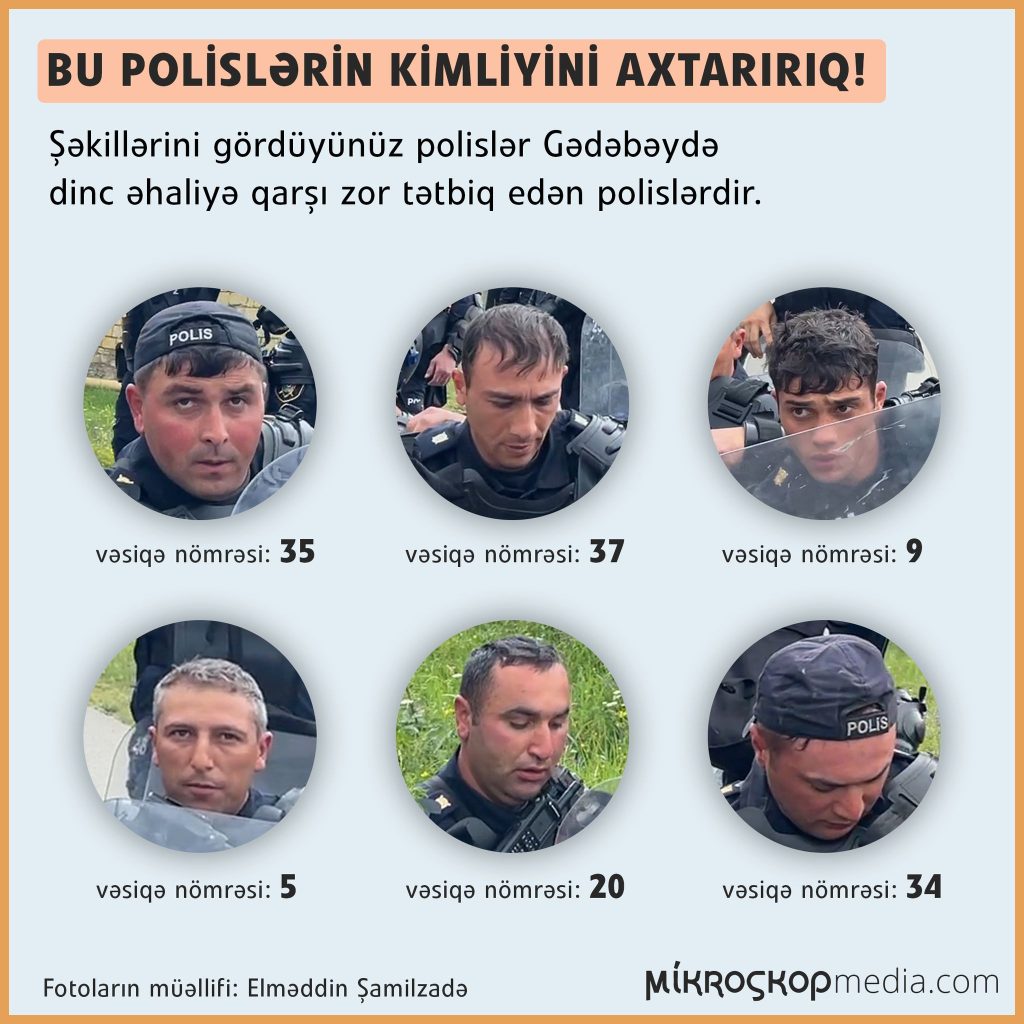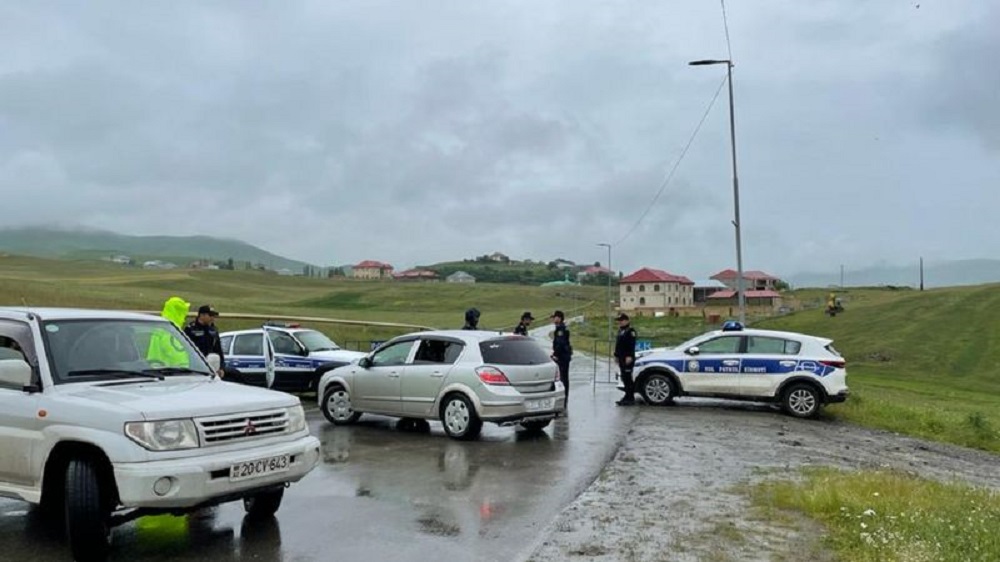A journalist covering events in Soyudlu spoke about torture at the police station
Events in Soyudlu – police violence
Journalist Elmaddin Shamilzadeh, who covered the protests that took place on June 20-21 in the village of Soyudlu in the Gadabay region of Azerbaijan, and then detained by the police, said that he was tortured in the department. “They told me to give the word of a man and not tell anyone about what happened there. Waking up from the shock, I realized that their actions do not correspond to the concept of the “male word”, which they themselves talked about, so I decided to tell everything.”
- Former deputy, mentioned as “organizer” of protests in Soyudlu, arrested
- “There is no Armenian army in Nagorno-Karabakh” – Pashinyan on Aliyev’s accusations
- Another 284 new flights from Russia to Georgia weekly
“I photographed the faces of the police”
“We were filming in Soyudlu. I caught some of the members of the police squad involved in the violence, with open faces, and photographed them. As soon as I arrived in Baku, I distributed the material at night, and the next day Mikroskop Media took these materials from me, openly shared the faces of these police officers with the inscription “we are looking for the names of these people” and mentioned me as the author,” Elmaddin Shamilzade told Voice of America.

The journalist disappeared on the afternoon of June 23. He shared a post on his Facebook account, consisting of one word – “torture”. After a few minutes this post was deleted and it was not possible to contact him. Later, several other posts criticizing the police in connection with the events in Soyudlu were also deleted from his account.
Elshad Hajiyev, head of the Ministry of Internal Affairs department, confirmed the journalist’s detention. However, he did not say why he had been detained and where he is being held.
The journalist was released the same day at about 10 pm.
“First they called from the military registration and enlistment office”
According to Shamilzade, after the photographs he took were published on social networks, he received a call from the state service for mobilization and conscription of the Lankaran region, where he is registered.
“I was told that at the end of each year I have to provide them with a document stating that I have moved to the next semester. But it’s illegal. Since I entered my doctorate in 2021, I am studying at one of the Turkish universities and have a four-year deferment from military service.”
Later, when the reporter was leaving the courtyard of his house, two men in civilian clothes approached him and asked him to go with them. When he tried to call his relatives to warn them, his phone was rudely taken away from him, and the journalist had to comply with their demand.
“He said:” If you do not give the password, we will rape you “”
According to Shamilzade, these people put him in a car and took him to the 29th police department. There he was asked for a password from the phone. When he said that he would not, they began torturing him.
“I was taken to the office of the operative, where, again, according to them, a preventive conversation took place. When I said that I would not give my password, one of the policemen punched me in the face. I covered my face with my hands, they both started beating me in the stomach and legs. When I told them not to hit me in the face, they started cursing. From the blows I fell to the floor, they were joined by a third policeman with a baton. He beat me with a club, the others kicked me, one of them sat on me and punched me in the stomach. Another policeman recorded the whole process on video.”
According to the journalist, he could not stand the torture and agreed to remove the posts that bothered the police, although he did not give his password. When the police gave him a phone to delete posts, he found an opportunity to write the word “Torture” on Facebook and share it. After that, the police stopped the torture, knowing that the case had been made public and colleagues and relatives began searching for Elmaddin Shamilzade.
“They started talking to me again. They said that I can delete my posts myself. Then they will let me go. I thought it might be true, I picked up the phone, deleted the post with the word “torture” and other posts about the police.
Then I was taken to the detention room. It was a dark, smelly, cramped, dirty place. The light fell only through the bars. I was kept there for about an hour. Then they took me back to the same office. I thought that I would be released, but it wasn’t. The operative entered the room with his nephew, began to undress, saying: “I will rape you if you do not give your password.”
Shamilzade says that after this threat he had to give the password. The phone was in the hands of the police for two hours.
“I don’t know what they did with my phone in those two hours.”
“Give me the word of a man…”
After that, two police officers of the main police department of the city of Baku took the journalist away and took him there.
“There I was taken to the waiting room of a police colonel named Tarkhan. After a long conversation, he took me out, and after about five minutes invited me again, said: “Let’s talk to you like a man, you give us a man’s word that after you leave, you won’t talk about torture anywhere, and we won’t conclude you under arrest for 30 days.
Shamilzade also noted that the Baku City Police Department prepared a protocol against him, the article on which does not imply either a fine or administrative arrest, and they also took a receipt from him.
“They asked me to write in a receipt that I apologize, regret my actions and will not do such actions again, and I wrote all this and signed it. A policeman named Tarkhan gave me his number so that in case of problems I could contact him. “From now on, you are our brother, our friend, etc.,” he told me. I accepted everything they said, being shocked by the experience. And after I got out of there and came to my senses, I realized that their behavior did not correspond to the concept of a “male word”, which they themselves spoke about. I decided to share everything that happened to me with the media, ”said the journalist.
At the end of that ill-fated day, one of the policemen drove Shamilzade home and returned his phone.





















